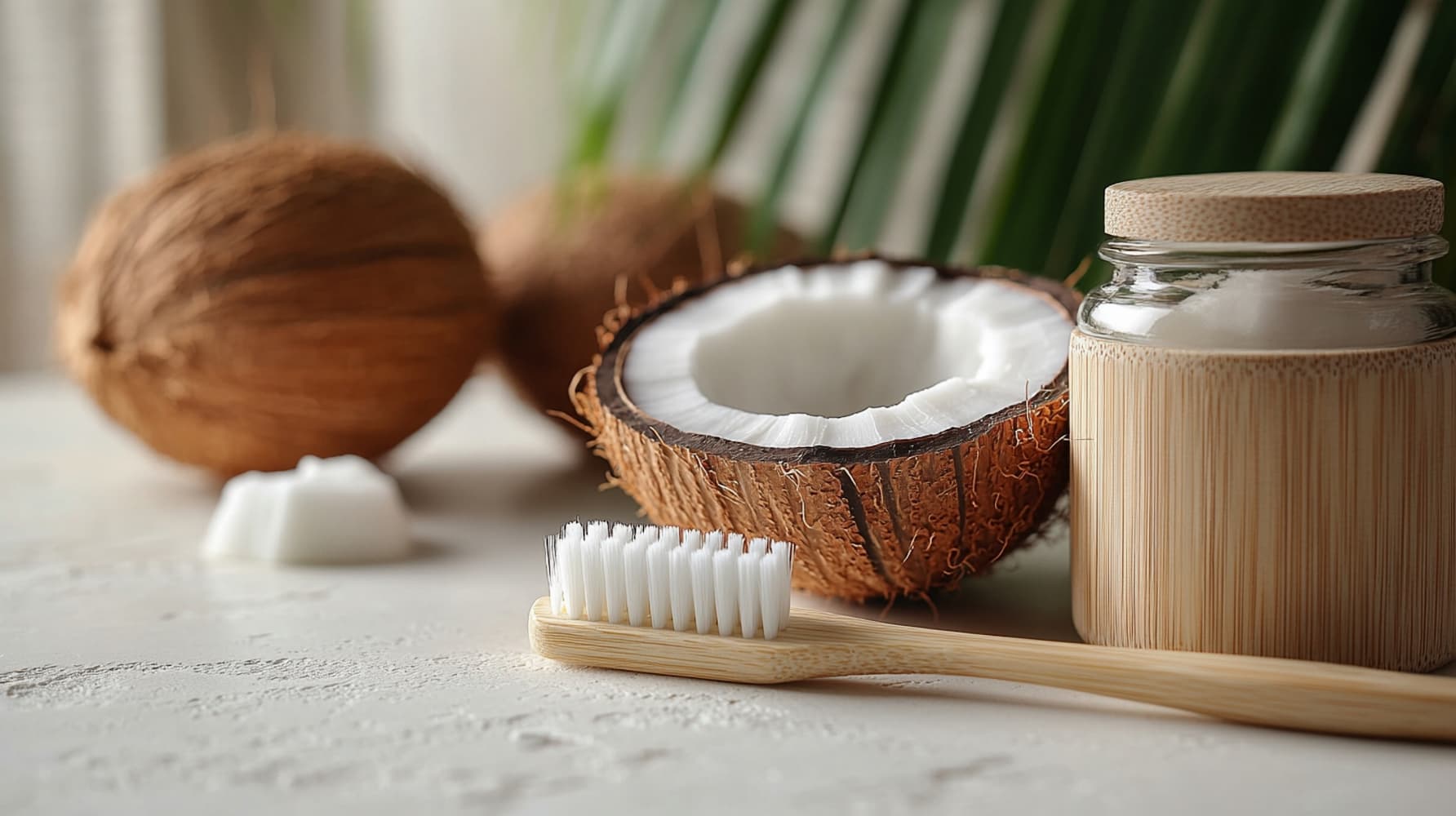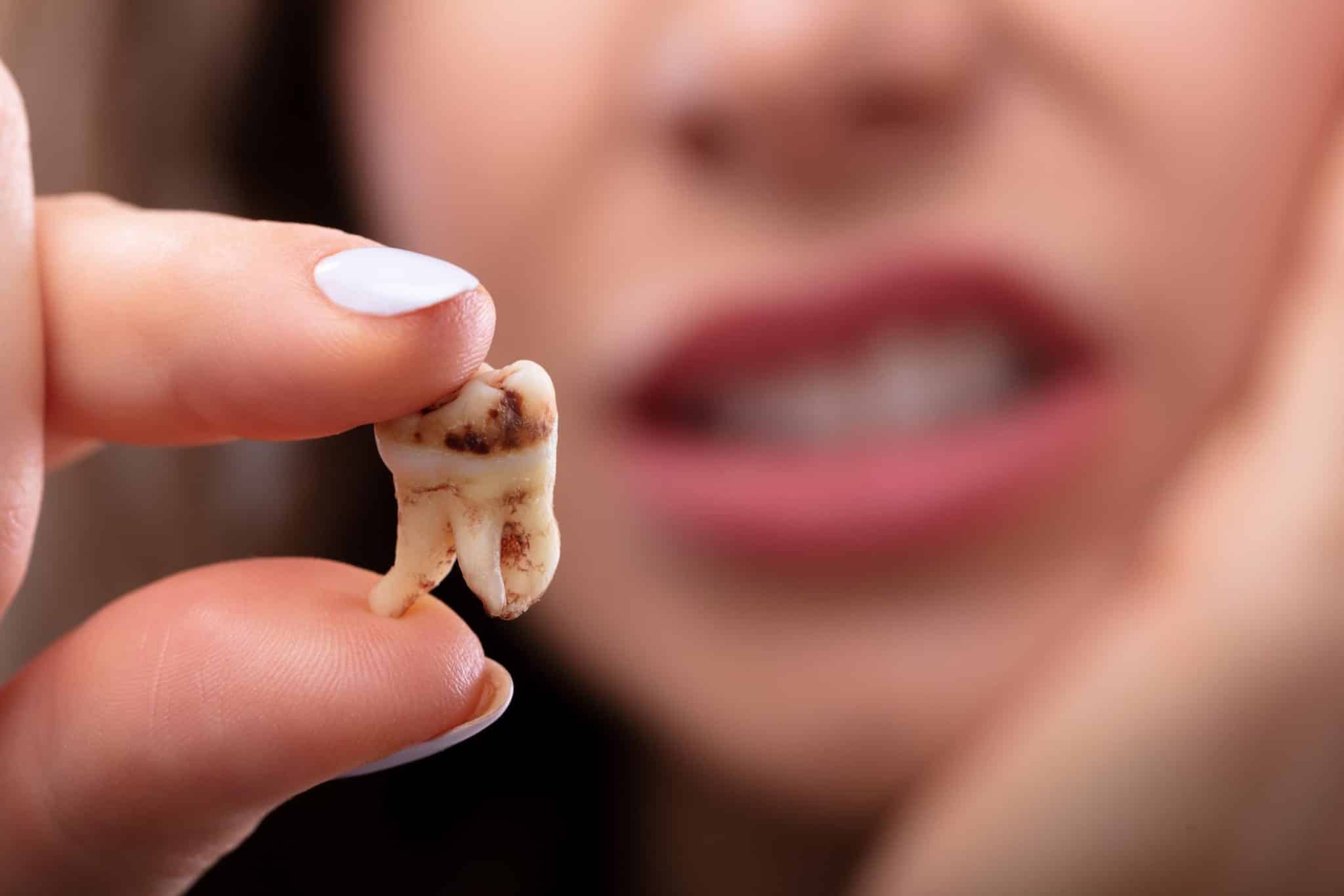We talk a lot about tooth care for teens and adults, but much less about tooth care for kids. Do kids and adults need the same type of tooth care? How should kids brush? Do they need to floss? How can you prevent cavities? CHD has compiled a comprehensive guide to dental care for kids.
The inside skinny on dental care for kids
- Good daily habits are the key to keeping your child’s mouth healthy,
- That means brushing regularly: 2 to 3 times a day for 3 minutes each time, using a soft-bristled toothbrush,
- Annual appointments with a dentist or dental hygienist for a dental exam, to identify issues like periodontitis and cavities,
- Children can switch to an electric toothbrush around age 5 to 6,
- Set a good example with your own tooth care routine,
- Maintain a balanced, low-sugar diet.
Baby teeth and adult teeth: eruption
Eruption of baby teeth
Babies get their first teeth when they are 4 to 8 months old. Their final baby teeth come in between 20 and 33 months, and will last until your child is 11 or 12.
There are several signs that your baby might be teething:
- lots of drooling,
- a rash on their mouth and chin caused by excess drool,
- a regular cough caused by drool,
- gum sensitivity, which can make them cry,
- extreme irritability,
- loss of appetite.
Call your pediatrician if your baby develops a fever or other symptoms.
Eruption of adult teeth
Baby teeth are important for the development of your child’s adult teeth, since they prepare and preserve their spots until they emerge when your child is 6 to 13 years old.
- Most children lose their median incisors first, around age 6.
- Their baby molars are replaced by adult premolars around age 10 to 12.
- Their baby canines are replaced by adult canines between ages 9 and 12.
- Their adult molars erupt in several steps. The first set of adult molars emerges around age 6, the second set around age 12, and the third set, which you probably know as wisdom teeth, between ages 18 and 25.
Brushing for kids: electric toothbrushes, toothpaste
Just like adults, children need to brush at least twice a day with a soft-bristled toothbrush and fluoride toothpaste (an amount the size of a pea is plenty). Children who are prone to cavities should also brush after every meal and all sticky or sugary snacks.
Preventing early childhood cavities
Life with kids is busy, and it can be easy to forget to create good eating habits. It’s important to:
- brush their teeth twice a day with fluoride toothpaste,
- avoid sugary foods, sodas, and candies,
- some children refuse a pacifier or bottle – never put honey or sugar on it to get them to take it,
- drinks other than water should only be allowed at meals. And never give your child unlimited access to a bottle of milk, juice, or other sugary drinks. Offer water between meals,
- encourage your child to switch from a bottle to a cup around age 1,
- children’s medicines contain sugar, so remember to brush their teeth every time they take medicine,
- regularly check the appearance of your child’s teeth and gums. Look for gray, yellow, green, or dull white spots. They can be the beginning of a cavity,
- Schedule an annual check-up with a dentist or hygienist.
Are electric or manual toothbrushes better?
We now know that electric toothbrushes are more effective than the manual version for adults.
They’re great for children, too, starting at age 5 or 6. The timer feature on most electric toothbrushes encourages longer brushing, which many people forget. But manual brushes work well too, as long as you use good technique.
Electric toothbrushes are not recommended before age 5 or 6. Younger children need a soft-bristled manual toothbrush.
Flossing for kids
Some children have widely spaced teeth, while others have tightly packed teeth. No toothbrush, no matter how high-tech, can clean the contact surface between two teeth. Those areas are particularly prone to cavities and can only be cleaned using dental floss.
That means your child will need adult help flossing at least once a day until they can floss independently.
The earlier you teach them to floss, the easier it will be and the faster it will become a part of their routine.
Setting a good example is key
Your child will learn to take care of their teeth by following your example. So make sure your example is a good one! We recommend having your child hold their brush and brush alongside you.
Of course you’ll need to finish brushing their teeth for them, since children aren’t ready to brush independently until age 6, or even as late as 8!
Children under age 6 always require adult supervision when they brush to make sure they’re getting every surface, that they don’t swallow toothpaste, and that they rinse their mouth.
Visits to the dental hygienist: key to kids’ dental health
Regular appointments with a dentist or dental hygienist are key to your child’s oral health. They are regular checks to ensure your child’s teeth are healthy, and they make going to the dentist a normal part of life.
We recommend at least one visit per year or every 6 months, depending on your provider’s recommendations.
Going to the dentist can be intimidating for children so it’s important to prepare them in advance. Role playing and books can help if your child is nervous. We recommend morning appointments, when your child is fresh and rested.
Their appointment will include tooth polishing, fluoride application, and personalized advice from the hygienist.
Dental hygiene for kids: sealants
Permanent molars have bumps and grooves on their chewing surfaces that can catch food and bacteria in biofilm (dental plaque), which can cause cavities.
As soon as your child’s first adult molars emerge, around age 6, your dentist or hygienist may recommend a sealant treatment if your child needs it. A sealant is a resin that fills in the bumps and grooves and can help prevent cavities when paired with good tooth care.
What should kids eat for healthy teeth?
Healthy snacks are key to keeping your child’s teeth healthy. Fruits, vegetables, and some cheeses are great for their teeth.
100% fruit juice is better than fruit drinks, which are high in sugar and low in vitamins.
But too much juice creates an acid environment, which can cause cavities. Water is always a better option. And make sure they get plenty of dairy!
More information: www.sge-ssn.ch
Orthodontics for kids
Most orthodontic treatments are done on teens and adults. But in some cases, it can be easier and cheaper to start orthodontics early to prevent problems instead of treating them.
About 15% to 20% of our 6- to 10-year-old patients are referred for orthodontic treatments. At that age, the treatments are short and use a minimum of appliances. The goal is to encourage their teeth and jaw to develop right.



